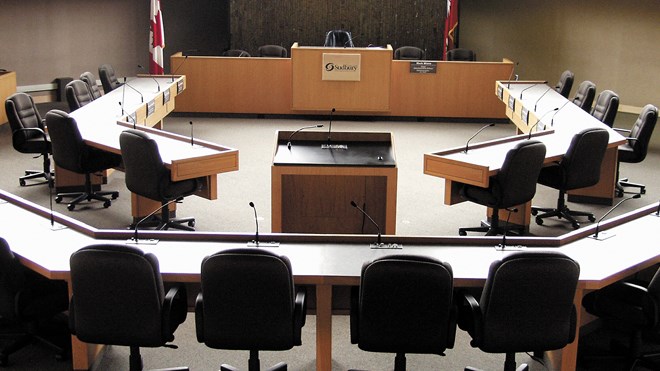A community of communities.
Has a nice sound to it, but is it a recipe for building a Greater city, or could it also be a recipe for divisiveness?
When the forced amalgamation of the communities surrounding Sudbury was carried out in the early 2000s, one of the main issues was how to recognize the smaller communities’ concerns, about losing their services and identities.
The answer at the time was, the new City of Greater Sudbury would comprise 12 wards, that would each have to some extent, a portion of the old communities as a geographic element, while also drawing a ward boundary that attempted to balance the population between the 12 wards.
The result of the 12-ward system was some very small wards in geographic terms, and others that are enormous in area, with all having roughly equal numbers with respect to voters.
The ward boundaries as they are presently constructed, perpetuate the illusion of communities within the Greater City, but that’s all it is, an illusion.
The current governance model for the CGS promotes ward-centric agendas and is counter productive to building a cohesive governance model for the city as a whole.
So what governance model could we consider, that would have the affect of unifying the city, and focusing efforts to build a better more effective, and cost-efficient city for all citizens?
Let’s consider this, a smaller council comprising seven at large councillors, that are all full-time positions.
All candidates would be running for one of seven seats on council.
The councillor who received the most overall votes during the municipal election would be appointed to the mayor’s position, the next six in descending order would fill the councillor positions.
So now everyone who runs for council will have to have a position on, and consider the concerns of, all residents, and the city as a whole.
Because all seven council members would be at large and responsible for all areas of the city, citizens would be able to express their concerns to all councillors, and all councillors would be duty bound to respond to those concerns.
In our current system if you look at the results of the 2014 municipal election and analyze the number of votes that each of the successful 12 ward councillors received, you would see that they range from a low of 1,467, to a high of 2,752, for an average of 2,071 votes per winning candidate.
The total number of ballots cast across the city was 59,686.
In a system where all 59,686 who cast ballots were able to vote for all seven councillors at large, the number of votes necessary to be elected would be significantly higher than the current average.
In order to get those votes, the candidates would have to have a platform and positions on all the issues that are of importance to all residents no matter where they reside within the city. This would have the affect of elevating the importance of current ward-centric issues to a city-wide status, while continuing to focus on the big picture issues of concern to all citizens.
The likelihood of electing a majority of councilors, who support a cohesive vision for the way the city should move forward on important issues, would be greatly increased.
Making the council positions full time would attract potential candidates to run who might otherwise not consider entering the race due to financial and or time concerns.
So, is this the answer to a better, more responsive, cohesive and accountable municipal government?
Perhaps, but one thing is certain, just shuffling the chairs in the council chamber, and the warm bodies that are sitting in them, every four years, is not the answer, any more than rearranging the deck chairs on the Titanic would do anything to prevent it from sinking.
At the very least, a serious and informed city-wide discussion on governance is in order.
Who knows, perhaps it will lead to the City of Greater Sudbury actually becoming “Greater”.
Dan Melanson
Sudbury
